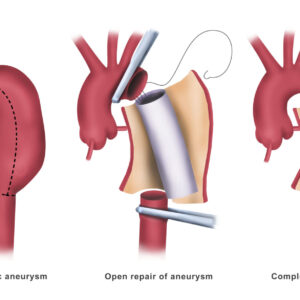Description
Familiarity with Treatment
Fixed retainers are orthodontic devices that are bonded to the back of the teeth to maintain the position of the teeth after orthodontic treatment. These retainers are typically worn for several years, and in some cases, indefinitely, to ensure the long-term stability of the orthodontic results.
Procedure
The procedure for fixed retainers involves the following key aspects:
- Bonding: The orthodontist bonds the fixed retainer to the back of the teeth using dental adhesive, ensuring a secure and permanent attachment.
- Custom Fit: The fixed retainer is custom-made to fit the individual’s teeth and is carefully positioned to maintain the alignment achieved through orthodontic treatment.
Who is it Suitable for?
Fixed retainers are suitable for individuals who have completed orthodontic treatment and need a long-term retention solution to maintain the position of their teeth. They are particularly beneficial for individuals who may have difficulty with compliance in wearing removable retainers.
Who is it Not Suitable for?
While fixed retainers are suitable for many individuals who have completed orthodontic treatment, they may not be suitable for those who have specific orthodontic conditions that require alternative retention methods. It is important for individuals to consult with their orthodontist to determine the most suitable post-treatment retention approach.
Advantages
- Long-Term Stability: Fixed retainers provide long-term stability by continuously maintaining the alignment of the teeth.
- No Compliance Required: Unlike removable retainers, fixed retainers do not rely on patient compliance for effectiveness.
- Inconspicuous: Fixed retainers are positioned on the back of the teeth, making them inconspicuous and not visible during everyday activities.
Complications
- Maintenance: Proper care and maintenance of fixed retainers are important to ensure their long-term effectiveness. Regular dental check-ups are necessary to monitor the condition of the retainer and ensure it remains securely bonded.
- Oral Hygiene: Individuals with fixed retainers need to be particularly diligent in maintaining good oral hygiene to prevent plaque buildup around the retainer, which can lead to dental issues.
Preoperative Care
Before receiving fixed retainers, individuals should undergo a comprehensive evaluation by an orthodontist to ensure that this type of retainer is suitable for maintaining the results of their orthodontic treatment.
Postoperative Care
After receiving fixed retainers, individuals need to responsibly care for and maintain their retainers. This includes regular dental check-ups, diligent oral hygiene practices, and promptly addressing any issues related to the fixed retainer.





Reviews
There are no reviews yet.